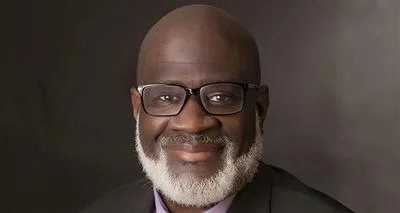Mark Weyermuller | Facebook / Mark Weyermuller
Mark Weyermuller | Facebook / Mark Weyermuller
Ahead of the Nov. 5 election, signs posted at Cook County DMV offices prompted those seeking voter registration forms in Chinese, Hindi, Polish, Spanish or Urdu to "please advise the clerk."
Illinois Secretary of State Alexi Giannoulias' signature followed the instructions.
Providing these forms in languages other than English has raised questions, in part because the U.S. Citizen and Immigration Services Naturalization Interview and Test requires naturalized citizens to learn English.
Mark Weyermuller, a Wilmette resident and retired realtor who writes an occasional column for conservative news site Illinois Review, shared his experience with the language options provided during the voting process.
“Yesterday when I voted they asked what language I wanted for a ballot,” he told North Cook News. “I did not see the full list but thought there were about eight languages, including Korean.”
Weyermuller raised concerns about the costs associated with printing thousands of multilingual ballots, questioning the security of extras.
“One issue is the cost of printing thousands of multi-language ballots, also they have way too many extra ballots,” he said. “Are they destroyed that night or do they end up in an unsecured location?”
While state law prohibits non-citizens from voting, critics argue that Illinois’ Automatic Voter Registration (AVR) system has experienced past glitches that resulted in hundreds of non-citizens being registered to vote. While there is an AVR opt-out process, it may be unclear to those who do not speak English, increasing the risk of violating federal law.
A Chinese national studying at the University of Michigan was recently charged with voter fraud and perjury after allegedly casting a ballot in the 2024 U.S. election despite not being a U.S. citizen.
The 19-year-old student registered to vote using his university ID and other documents, and later attempted to retrieve his ballot.
This incident has raised more questions about the potential for non-citizens to cast ballots as authorities investigate whether it was an isolated mistake or part of a broader effort, including possible foreign interference.
Weyermuller also shared his thoughts on Illinois’ approach to driver’s licenses for non-citizens.
"And one comment on drivers licenses for illegals or non-citizens," he said. "If illegal, they should have a license that says non-citizens, like minors, have a vertical license so they can’t buy liquor.”
Weyermuller’s remarks reflect growing concerns about the state’s policies, confusion around voter eligibility, and the potential for fraud.
The issue of non-citizen voter registration continues to spark debate, with calls for stronger safeguards and more accountability within the AVR system.
The discussion of multilingual ballots and non-citizen voter registration coincides with broader concerns about the integrity of voter rolls.
Prior to the Nov. 5 election several states purged non-citizens from their voter rolls, with Virginia, Texas and Alabama removing thousands of ineligible voters.
In Virginia, Governor Glenn Youngkin announced the removal of over 6,300 non-citizens, while Texas reported the removal of more than 6,500 noncitizens, including 1,930 who had voted.
Despite claims from leftist politicians and mainstream media that non-citizen voting is rare, experts warn that even small instances of fraudulent voting could have significant impacts on close elections.






 Alerts Sign-up
Alerts Sign-up